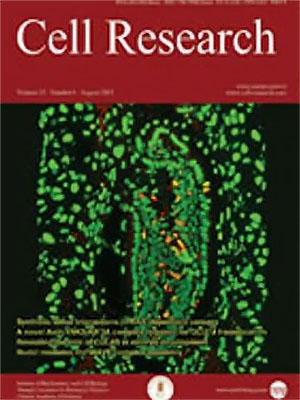Volume 5 Issue 2, December 1995: 143-154
ORIGINAL ARTICLES
Changes of macromolecular organizations in nonjunctional sarcolemmas after cross-innervation-a study of fast-and slow-twitch muscle fibres in rats.
LU JIANLI, TIEFENG ZHANG, FUJIN QU, BEIHUA QIAN, SHIKAI HUANG.
Shanghai Institute of Physiology, Chinese Academy of Sciences, 320 Yue-Yang Road, Shanghai 200031, China.
Correspondence: SHIKAI HUANG
The purpose of the present study was to analyse the changes of macromolecular organizations in nonjunctional sarcolemmas of different types of skeletal muscle fibres after cross-innervation. In normal rats the mean density of square arrays (6 nm particles organized in orthogonal arrays) was 9.02/nm2 for the nonjunctional sarcolemmas of fast-twitch extensor digitorum longus (control EDL, CE) muscle fibres and 0.34/um2 for the nonjunctional sarcolemmas of slow-twitch soleus (control SOL, CS) muscle fibres. After cross-innervation between the fast-twitch EDL and slow-twitch SOL muscle fibres by slow and fast muscle nerves respectively for three months, the mean density was 0.45/um2 for the nonjunctional sarcolemmas of the operated EDL (OE) and 8.3/um2 for the nonjunctional sarcolemmas of the operated SOL (OS). This indicates that the cross-innervation causes a reciprocal transformation of the number and distribution of such macromolecular organizations in the electrically excitable nonjunctional sarcolemmas.
FULL TEXT | PDF
Browse 2375


